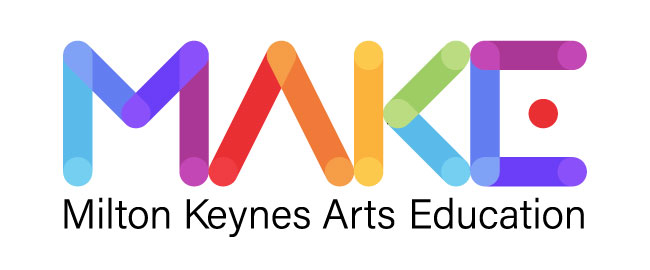The Artis Story
|
How it all came about
Why we grew At that point Artis was collaborating with just 30 progressive primary schools in Essex and Manchester and had 25 arts educators on the panel. The following year, after gaining full control of delivering our educational vision, we doubled in size. More and more pioneering Headteachers began partnering Artis to provide their children with magical learning experiences. Arts educators found out about the comprehensive training we offered. The development of mentoring and leadership positions within the organisation made us a desirable employer for arts educators, offering them a pathway to a fulfilling portfolio career. Indeed Artis now receives over 1,000 applications a year from arts educators. And thanks to the enduring vision of countless Headteachers who share our values, we now work with 50,000 children every week across Greater London, Manchester, Leeds and Birmingham.
What was different In an effort to stand out to schools and children, everyone in the company chose an onomatopoeic name that best described them. These words represented sounds, movements or gestures, expressing our focus on music, dance and drama. I kicked off and chose Buzz (because I wanted to make sure I created one), then came Lord Puttnam with Whirl (because he’s always in one), and Lord Bichard picked Wham (because he likes to get things done – or maybe he has a thing for the pop group). At the outset we thought any playful name would do. But we soon ran into trouble. Schools weren’t particularly keen, for example, on the name of one of our male dancers, Flash. Nibble’s name was deliberately mispronounced by the children to their great delight and her great distress. And then there was the double bass player who chose the sound she made on her instrument, Pluck. Needless to say, her school in Essex insisted the name be covered up for the rhyming connotations even before she went in front of a Reception class. Soon we had inappropriate regional connotations to contend with. Our Manchester schools informed us that Whizz was both the name of a drug and the slang term for relieving yourself. Needless to say all suggestions are now closely vetted! Despite the few rejected names in the early days we now have hundreds of unique onomatopoeic arts educators. We’ve even had twin Artis Specialists, Tick and Tock! Now, some schools love the names so much that their entire staff chooses onomatopoeic names that reflect their personalities. As you can imagine, these names are for adult ears only…
Why we are still here 10 years ago many schools had not considered outsourcing part of their children’s learning. Some had had mixed experiences bringing in talented artists who turned out to have poor teaching skills. Schools were understandably anxious about engaging us to work with their children every week for an entire academic year. Being acutely aware that a massive 80% of new companies don’t survive their first 18 months, we very quickly had to convince schools of our quality and start building lasting relationships with Headteachers. In our setup year, we were fortunate enough to be accepted onto an amazing government funded course at the London Business School called Building Creative Businesses. It was here that we were asked to come up with our non-negotiables. Right from day one we decided that we had to invest heavily in transforming performers into arts educators. Extensive training and mentoring became our non-negotiables. We were convinced that if our innovative programme was not delivered by highly trained practitioners, schools wouldn’t invest in us let alone stay with us, and it wouldn’t be too long before we joined that 80% of failed companies. Our substantial ongoing investment in training and mentoring – on average £1,500 per Artis Specialist per year – has been pivotal to why we’re still here and why we’ve been lucky enough to join the 20% of start-up successes.
What convinced schools With highly trained arts educators in place, it was time to get on the road and persuade schools about the benefits of working with Artis. One Ilford school visit stands out. We had just 30 minutes with the children to convince a Headteacher to prioritise his budget for us. During the interactive demonstration the class was asked to come up with an imaginary place. To the Headteacher’s dismay the children responded ‘McDonalds’, ‘ToysRUs’ and ‘my nan’s house’. At that very moment he realised his staff weren’t stimulating the children’s imaginations beyond their everyday experiences in the way Artis could every week. I have to say that one of the most exciting moments in my life was receiving the first signed contract from a school. After the gargantuan effort that went into launching the company, I was convinced that if one exceptional Headteacher engaged with us then other partnerships would definitely follow. Our very first school was Moulsham Infant School in Essex and we’re still working there 10 years later. Indeed it’s strange to think that those Reception children we worked with in 2004 will soon be embarking on their GCSEs.
What has changed In the beginning, we were adamant that everyone at Artis had to demonstrate they had an affinity with the arts – even the administrative team. So in the middle of their first interview everyone was asked to sing. We don’t feel that’s such an essential management skill any more. Most of our wonderful management team was not subjected to singing at their interview. Indeed some might not have joined us if we had insisted on a tune…
Although some things have changed at Artis as we have grown over the last 10 years, our non-negotiables have remained steadfast. The London Business School was concerned that we would end up spending all this money on training and mentoring arts practitioners who would take these skills elsewhere. To their surprise we celebrated this. Our Artis Specialists with their portfolio careers would definitely be taking their enhanced talents elsewhere and enriching the lives of more children – and that is precisely the point of why we are a social business.
Artis would never have thrived if it weren’t for our schools recognising the power that the arts can have on learning outcomes. If together we can raise the standard of arts education and elevate its status, then our mission to transform education through the arts is being accomplished. |
16 Oct 2013 |















